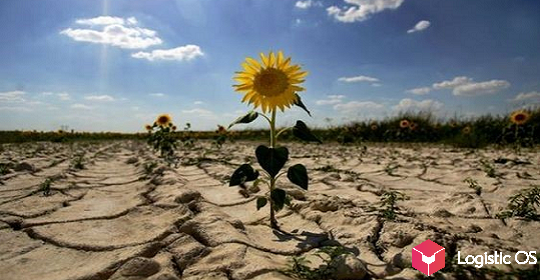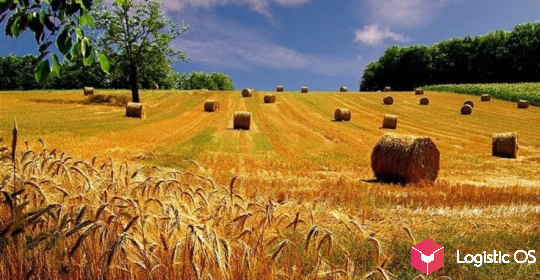This year, Russia managed to break all records in terms of grain production, including the historical record of 2017.
This season, the Russian Federation has harvested 150 million tons of grain, which is 15 million tons more than in 2017.
Up to 60 million tons of this volume can be exported, which is 5 million tons more than the previous record.
All this once again confirms that Russia is the world’s largest exporter of wheat with a 20% world market share, and also ranks second in grain exports (10% share).
It is impossible not to remember that only 20 years ago the Russian Federation was a net exporter of grain.
Thanks to the huge work carried out in the Russian agro-industrial complex, it was possible to achieve the current state of affairs.
Export is having problems
Despite the huge production figures, exports from the Russian Federation were almost always difficult.
For example, in 2017, it was hampered by the insufficient capacity of transshipment points and seaports.
Now there are problems of a different kind related to sanctions:
The complexity of chartering sea vessels for the transport of grain
Difficulties with obtaining insurance for a consignment
Difficulties in settlements with buyers due to the imposition of restrictions on many Russian banks
As a result of all this, grain exports from Russia are still “slowing down”.
For example, in July-September, only 12 million tons of grain were exported, which is about 20% lower than the average annual values for this period.
There are additional factors that slow down the pace of exports.
First of all, it is a strong ruble. Since most settlements are in dollars and euros, the exchange rate becomes unattractive for exporters.
There is a so-called export parity: selling grain on the domestic market is almost as profitable as sending it abroad, while domestic prices also sank over the past year.
And, of course, export duty. Not only does it reduce the profitability of trading, it also introduces an uncertainty factor.
Since the size of the duty is reviewed by the government on a weekly basis, it turns out that Russian exporters cannot conclude long-term contracts.
Can we wait for the recovery?
However, experts believe that exports have every chance to recover.
The global grain market has been under the risk of shortages for many years, and Russia and Ukraine are the only exporting countries that have grain stocks.
Moreover, in the Russian Federation, grain production has a minimum cost due to the cheapness of fuel, fertilizers and labor. Therefore, most likely, other countries will eventually have to buy Russian grain.

